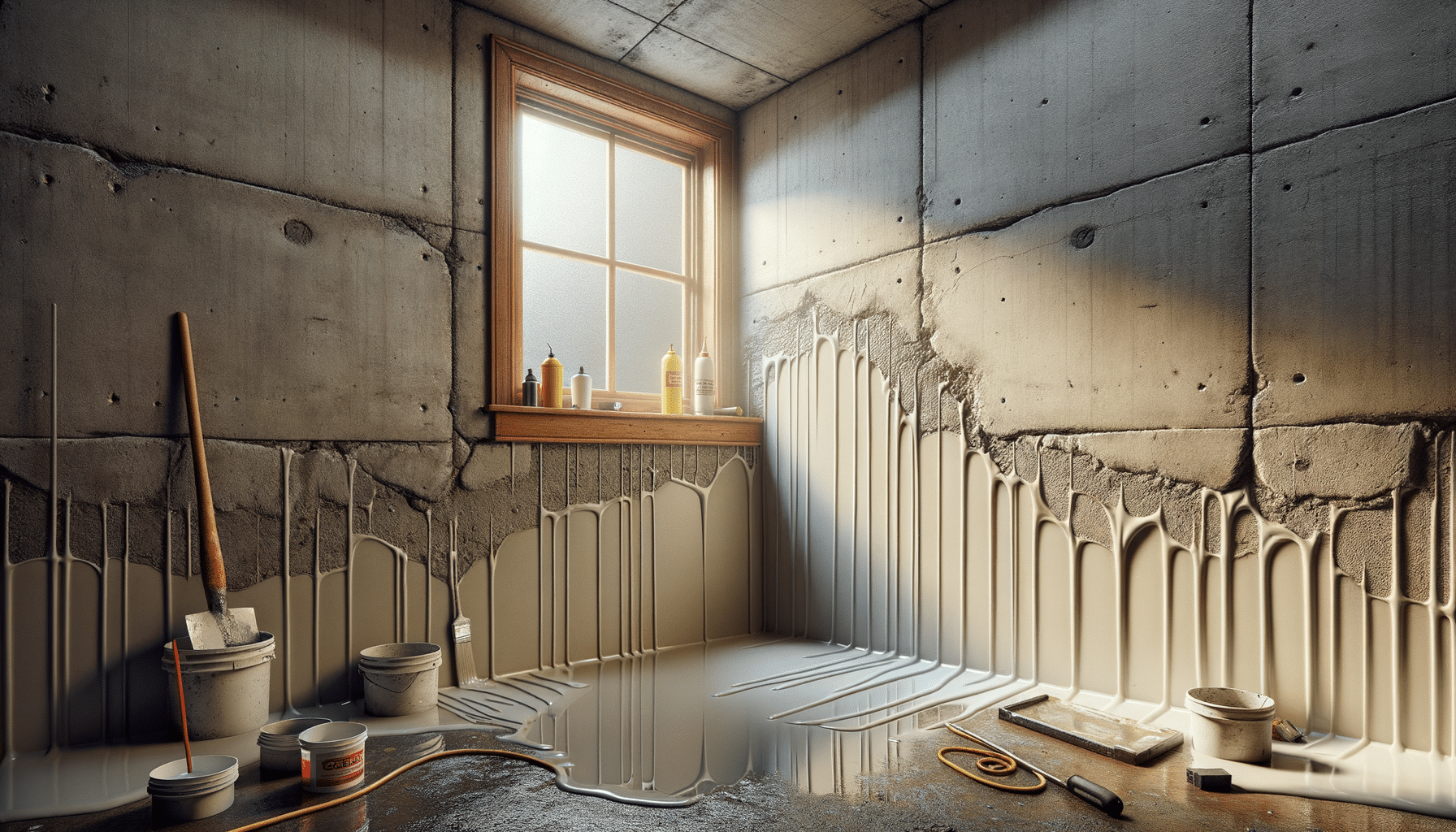
Choosing the Right Basement Waterproofing Adhesives
The Importance of Basement Waterproofing
Basements are notorious for being damp and musty, often due to moisture seeping through walls and floors. This not only leads to unpleasant odors but can also cause significant structural damage over time. Waterproofing your basement is essential for maintaining the integrity of your home and preventing costly repairs in the future. Effective waterproofing acts as a barrier, stopping water from penetrating your basement walls and floors. By choosing the right waterproofing measures, you can protect your home from mold growth, foundation damage, and other moisture-related issues.
There are several methods of waterproofing, including interior sealants, exterior membranes, and drainage systems. However, when dealing with small leaks or cracks, a waterproof adhesive can be a practical and cost-effective solution. These adhesives are designed to seal gaps and prevent water infiltration, providing a strong bond that can withstand the pressures of moisture. Selecting the right adhesive for your basement involves understanding the types of adhesives available and their specific applications.
Types of Waterproof Adhesives
The market offers a variety of waterproof adhesives, each suited to different applications and materials. Understanding the differences can help you make an informed choice for your basement needs. Some common types include polyurethane, epoxy, and silicone adhesives.
- Polyurethane Adhesives: Known for their versatility, polyurethane adhesives are highly flexible and can bond a wide range of materials. They are excellent for areas that experience movement and vibration, making them ideal for sealing joints and cracks in basement walls.
- Epoxy Adhesives: Epoxy adhesives are renowned for their strength and durability. They create a rigid bond that is resistant to water and chemicals, making them suitable for structural repairs. Epoxy is particularly useful for filling larger cracks and providing a long-lasting seal.
- Silicone Adhesives: These adhesives are excellent for sealing gaps and joints, offering flexibility and resistance to temperature changes. Silicone adhesives are often used for caulking and sealing around windows and doors in basements.
Choosing the right type of adhesive depends on the specific needs of your basement and the materials involved. Consider the size and location of the leaks, as well as the environmental conditions your basement faces.
Application Techniques for Waterproof Adhesives
Applying waterproof adhesives correctly is crucial for achieving the desired results. The first step is to prepare the surface by cleaning it thoroughly to remove any dirt, dust, or loose particles. This ensures that the adhesive can bond effectively to the surface. Next, identify the areas that require sealing, such as cracks, joints, or gaps around fixtures.
When applying the adhesive, follow the manufacturer’s instructions carefully. Most adhesives come with specific guidelines regarding the thickness of application and the curing time required. Using a caulking gun or a trowel, apply the adhesive evenly along the targeted areas, ensuring full coverage. For larger areas, multiple layers may be necessary to achieve a complete seal.
After application, allow the adhesive to cure fully before exposing it to moisture. This curing period is essential for the adhesive to reach its maximum bonding strength. Depending on the type of adhesive used, this can range from a few hours to several days.
Benefits of Using Waterproof Adhesives
Waterproof adhesives offer several advantages for basement waterproofing. One of the primary benefits is their cost-effectiveness. Compared to extensive waterproofing systems, adhesives provide a budget-friendly solution for minor leaks and cracks. They are also relatively easy to apply, making them suitable for DIY enthusiasts looking to tackle small projects without professional help.
Furthermore, waterproof adhesives are versatile and can be used on various materials, including concrete, wood, and metal. This adaptability makes them a valuable tool in any homeowner’s toolkit. Additionally, they provide a quick fix for emergencies, allowing you to address leaks promptly before they escalate into more significant problems.
Another benefit is the long-lasting protection they offer. High-quality waterproof adhesives are designed to withstand harsh conditions, providing a durable seal that can last for years. This durability ensures that your basement remains dry and protected, reducing the risk of mold growth and structural damage.
Conclusion: Choosing the Right Adhesive for Your Needs
In conclusion, waterproof adhesives are an excellent option for homeowners looking to protect their basements from moisture. By understanding the types of adhesives available and their specific applications, you can make an informed decision that suits your needs. Whether you’re dealing with small leaks or more significant structural issues, the right adhesive can provide a reliable and cost-effective solution.
Remember to consider factors such as the size of the leaks, the materials involved, and the environmental conditions when selecting an adhesive. By choosing wisely and applying the adhesive correctly, you can safeguard your basement against water damage and maintain the integrity of your home for years to come.